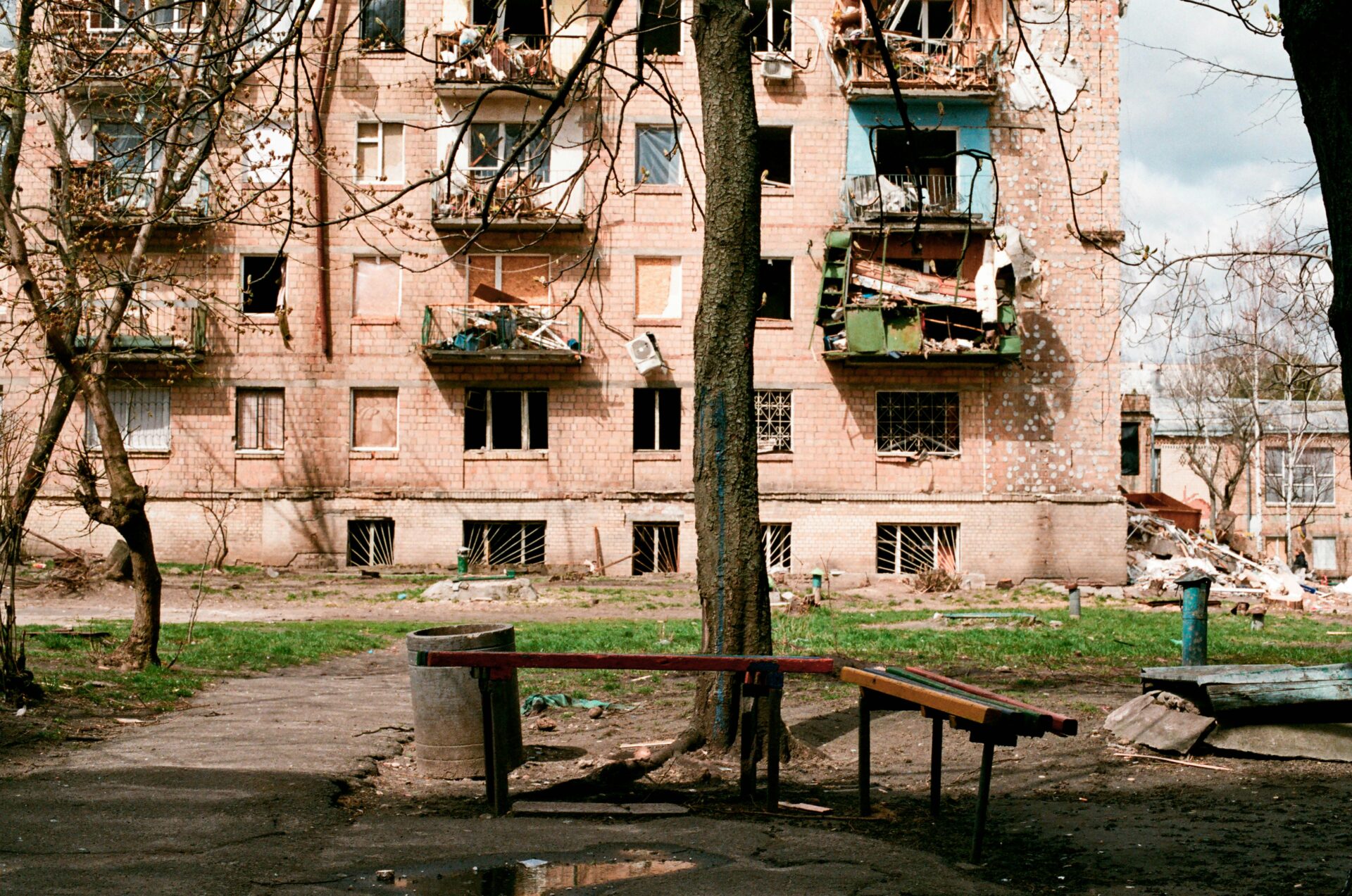February marked two tragic anniversaries in Ukraine: ten years since the war in the Donbass and two years since Russia’s full-scale invasion. This unfortunate convergence provides the international community and the United States with the occasion to reflect on its approach to supporting sustainable peace both in Ukraine and across the region.
The United States’ focus on a battlefield victory has not brought peace.
Ukraine has now faced a decade of violence and displacement. The last two years have shown the horrific impact large-scale warfare has on civilians. Nearly 10 million Ukrainian civilians are displaced and more than 30,000 have been killed or injured. This in addition to more than half a million killed or injured from the Russian and Ukrainian armed forces. The BBC estimates that, on top of the more than 100,000 Russian and Russian-aligned forces who have died, a further 321,000 were seriously wounded or are missing. Meanwhile, 2023 leaked US estimates show Ukraine has suffered more than 125,000 casualties, with as many as 17,500 killed.
As this war drags on, not only will the casualties and displacement continue to increase but so will the militarization of Russian and Ukrainian societies. Both are facing conscription, with the rights of conscientious objectors being denied by both sides. Constraints on freedom of speech and the press continue to intensify, with growing censorship in Ukraine along with the outright criminalization of public opposition to the war in Russia. Ukraine has seen restrictions on political parties and religious affiliations, and both countries face concerning restrictions on their elections ahead.
Troublingly, this increasing militarization has not only affected Russia and Ukraine but the whole region. NATO has expanded with longtime neutral states Sweden and Finland joining. This while military spending across Europe has dramatically increased as foreign assistance faces cuts.
A new approach
After two years of a military-first response that has failed to secure lasting peace, we know war is not the answer. More support for weapons and war will not bring peace. Now is the time for the US to realign its approach and focus on de-escalation. The United States must seize this opportunity to recalibrate and better support the Ukrainian people and a just, sustainable peace.
But how can the United States support a just and sustainable peace?
Troublingly, this increasing militarization has not only affected Russia and Ukraine but the whole region.
The Friends Committee on National Legislation (FCNL) has proposed a roadmap for Congress and the administration to play a constructive role in ending the violence in Ukraine. Grounded in FCNL’s Quaker faith, it lays out specific, realistic actions to end the war while mitigating risks of nuclear escalation.
In sum, Congress must require the administration to provide a diplomatic strategy, increase restrictions on cluster munitions and other indiscriminate weapons, increase funding for humanitarian assistance and peacebuilding, ensure arms control as part of the US response, fully fund and support international institutions, and strengthen oversight on military aid.
Supporting Sustainable Peace
As a first step in seeking sustainable peace for Ukraine and the region, FCNL urges all parties involved to implement an immediate ceasefire and the full withdrawal of Russian troops from Ukrainian territory. To achieve a ceasefire and lay the groundwork for a negotiated settlement to the conflict, the United States cannot and should not dictate terms.
However, it must do more to support multilateral diplomatic efforts towards establishing the ceasefire, bringing all parties to the table, and opening space for a comprehensive, inclusive peace process.
Congress should also hold the State Department accountable to implement the Women, Peace and Security Act (P.L. 115-93) and ensure that any diplomatic process includes the meaningful participation of all stakeholders. Global experience and decades of research shows inclusive processes better ensure more durable peace, security, and stability.
Congress must invest more in peacebuilding efforts to rebuild relationships in communities fractured by the war and Russian and Ukrainian people. Improving social cohesion will be critical to any peace process.
Congress and the administration must also do more to support accountability for war-time atrocities. This includes increased funding for the State Department’s support of legal experts and forensic anthropologists to identify victims of war crimes, crimes against humanity, and genocide. Further, Congress should allow such funding to be made available to local civil society actors to collect evidence of these crimes for future accountability efforts.
Moment of Reflection
Lastly, current security arrangements for Europe are based on the threat of force and the promise of war. This horrific war only highlights what terrible outcomes such promises hold. The US should be leading efforts to negotiate more sustainable security arrangements for the region based on multilateralism, diplomacy, economic cooperation, human rights, and rule of law.
These two anniversaries offer a moment of reflection on the loss and destruction the Russian invasion of Ukraine has wrought. But they also offer a critical opportunity for the United States to urgently realign its approach to this war. Now is the time to increase support for diplomacy, an inclusive process leading to a negotiated settlement, and sustainable peace in the region.
Again, war is not the answer.





















